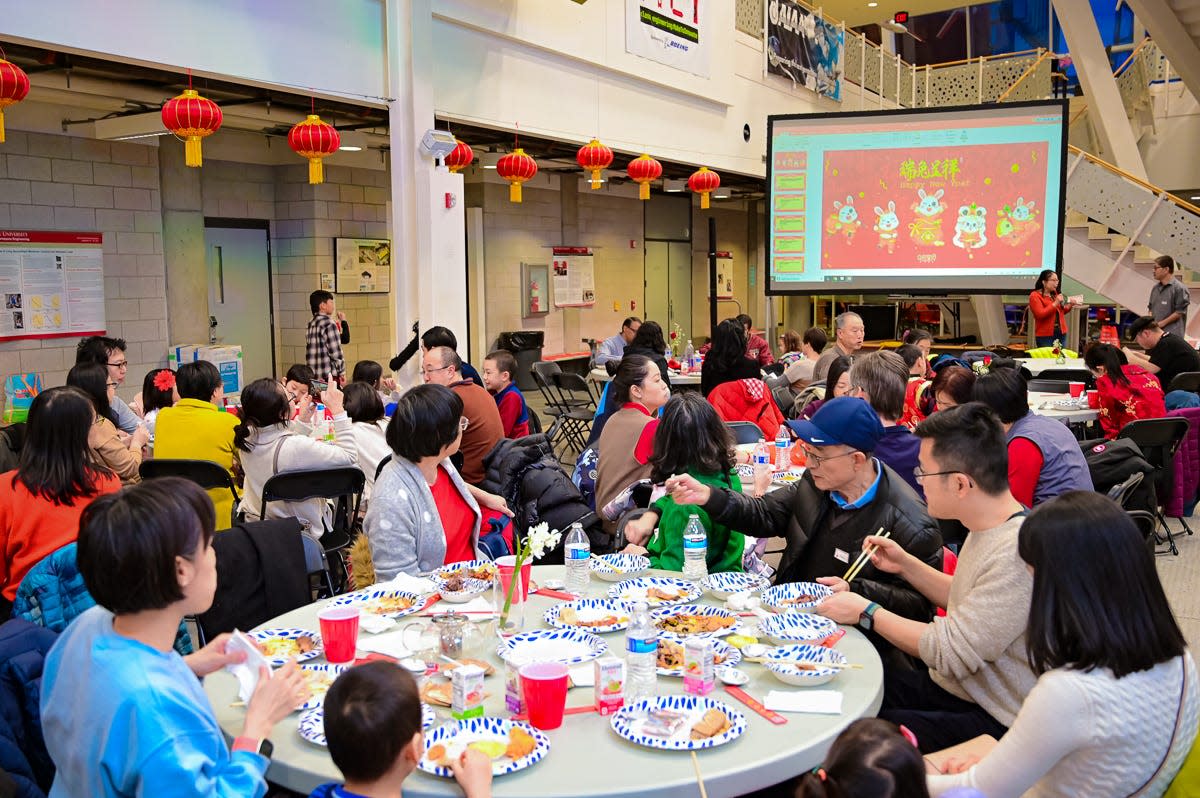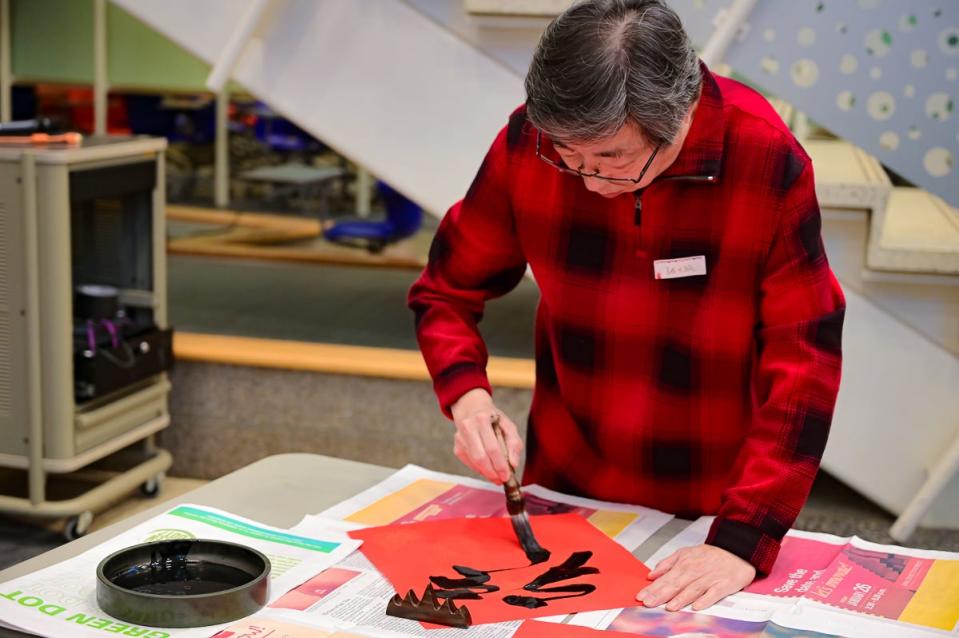Chinese faculty association at Iowa State celebrates first Lunar New Year event; more celebrations to come

The Chinese Faculty and Scholar Association at Iowa State University recently came together to recognize a holiday that's important to many families but has been recently difficult to celebrate. So for the first time, the association held its own celebration.
The celebration of Lunar New Year is another large in-person event this year on campus to observe Asian American and Pacific Islander heritage in the community.
Shan Jiang, an associate professor of materials science and engineering at Iowa State, said the celebration of Lunar New Year in China involves huge festivities — combining the revelry, reflections and well wishes of a new year's beginnings with one of the few times in the year all family members come together to share a meal.
About two billion people across the world celebrate Lunar New Year, especially in many countries in Asia including China, Indonesia, Malaysia, the Philippines, Singapore, South Korea and Vietnam. The name for the holiday and specific traditions, including how many days it lasts, varies by culture.
More:Lunar New Year 2023: When is the holiday and what does the Year of the Rabbit represent?
The exact date of the new year also changes depending on the year because the calendar involved is based on the phases of the moon.
The COVID-19 pandemic cut families' connections, Jiang said. He said many Chinese Americans have been wanting to travel to China to celebrate, but could not because of restrictions.
"You really miss your family most during the festivals," he said.
The Chinese government only recently scaled back its pandemic lockdown and travel restrictions that had been in place for years — doing so in response to protesters venting their frustrations on the streets but sparking a surge in COVID-19 cases. The U.S. Department of State continues to urge people to reconsider travel to China, despite the country's welcoming back of tourists.
The U.S. and other countries' requirements for COVID-19 testing of travelers from China has led to diplomatic tensions and renewed fears among Asian community advocates of increased anti-Asian hate and bias — which has been an increased problem during the pandemic.
More:COVID tests for US travelers from China spark fears of new wave of anti-Asian hate
Jiang said the pandemic and all the isolation people in the community have had to endure reminded them of the importance of celebrating Lunar New Year.
"It gives hope that things are getting back to normal," he said.
He also said it's important to give friends who are not from China an opportunity to see the culture and promote understanding.
Even without a pandemic, Jiang said not having time off during Lunar New Year makes travel difficult, given the distance to China. So, organizers got to thinking about a gathering in Ames – "'Why don’t we just come together as a big family?'" – to pay respect to the culture.

What goes into a good Lunar New Year celebration?
Jiang said students have organized Lunar New Year celebrations on campus before, but this year was the first time faculty and scholars had put something together.
He said the Chinese Faculty and Scholar Association has been around for a little more than a year and is different than the Chinese Students and Scholars Association on campus.
Enrollment at Iowa State by international students who are from China has dramatically fallen in recent years, which began well before the pandemic. China is still the second-most represented nation on campus after India, however, followed by South Korea and Malaysia.
More:Iowa State's international student office prepares to reinvigorate student match program
Jiang said about 140 or 150 people attended the Lunar New Year celebration that was held Jan. 21 in Howe Hall. He helped to organize the event with about eight other people over two weeks. He wanted to make clear he was not in charge, however: “I like to show this is a team effort.”
He said the association also received funding from the university's diversity, equity and inclusion office.
A key thing to get for the celebration was dumplings — which people made themselves and stuffed with vegetables, pork or shrimp. Jiang said the restaurants Wok N Roll, Szechuan House and Little Taipei all contributed food including dumpling fillings and dessert.
There was also a chance for people to create their own Chinese calligraphy. Jiang said the ornate writing basically conveys wishes for health and good luck at the start of the new year, and he put some on his own home's door.
It was also his 5-year-old son's first ever Lunar New Year celebration, which added to the specialness of the occasion.

He said the faculty and scholar association does host other events during the year, including lectures on Asian American history and U.S.-China relations that are open to the public, and a summer barbecue.
Jiang said if the association hosts a Lunar New Year celebration again next year, they want to make it even more inclusive and include more people who are interested in learning more about Chinese culture.
But people won't have to wait that long for another opportunity to celebrate Asian American and Pacific Islander culture. Chunhui Chen, a physics and astronomy professor at Iowa State, said Chinese, Indian and Korean Americans and others are working to bring back on May 6 an in-person event celebrating Asian American and Pacific Islander cultures during the month dedicated to that heritage.
Chen said last year's inaugural event had more than 300 people attend, and more details about the upcoming celebration would be shared as they're available.
More:Ag innovator celebrated for humanity, wisdom on Iowa's first George Washington Carver Day
Phillip Sitter covers education for the Ames Tribune, including Iowa State University and PreK-12 schools in Ames and elsewhere in Story County. Phillip can be reached via email at psitter@gannett.com. He is on Twitter @pslifeisabeauty.
This article originally appeared on Ames Tribune: ISU Chinese faculty association celebrates first Lunar New Year event

